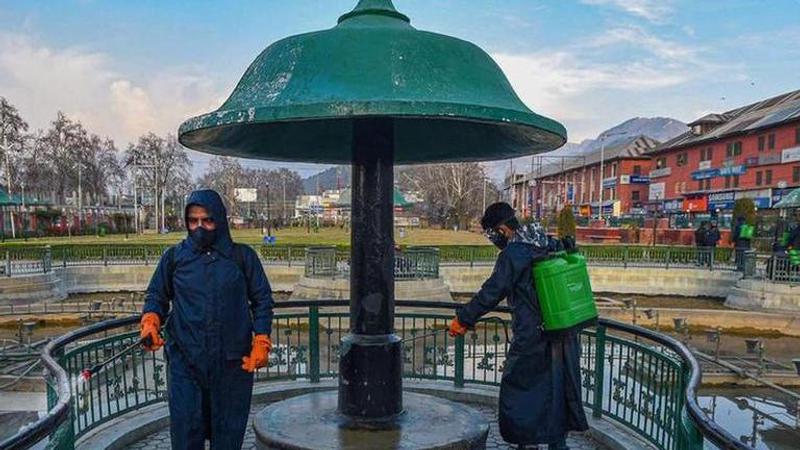Published 17:47 IST, April 19th 2020
COVID-19: Closure of temples dashes revival hopes of flower farmers in Jammu
The floriculturists in Jammu have lost hopes of a revival of their fortunes this season and are staring at huge losses owing to the indefinite closure of temples, the main source of their income, due to the nationwide lockdown to combat novel coronavirus.

Advertisement
The floriculturists in Jammu have lost hopes of a revival of their fortunes this season and are staring at huge losses owing to the indefinite closure of temples, the main source of their income, due to the nationwide lockdown to combat novel coronavirus.
Jammu, known as the city of temples, has come to a standstill since March 22, two days ahead of the first nationwide lockdown announced by Prime Minister Narendra Modi.
The lockdown has since been extended till May 3. Ajit Ram (55) of Koratana village near the International Border in Suchetgarh sector, about 30 kms from here, had invested Rs 1.50 lakh in his nearly two acre land with a hope to get good dividends this season.
“The season is gone and there is no hope for us… I had shifted to floriculture a few years ago and had brought more land for the cultivation of different varieties of the most demanded Marigold flower,” he told PTI as he stands disappointed in his vast field presenting a mesmerizing view of flowers in full bloom.
Ram said he used to sell the produce at flower markets near Indira Chowk in the heart of Jammu in the wee hours on a daily basis.
“The mandi (market) is closed and there are no takers for the flowers because all the temples are closed due to the lockdown and the people are staying at their homes as per the government guidelines. This season, the weather was favourable and we were expecting a bumper crop and a better yield,” he said.
While the famous Vaishno Devi shrine atop Trikuta hills in Reasi district was closed on March 18, other popular temples in Jammu city, including Raghunath Mandir, Bawey Wali Mata Mandir near Bahu Fort and Peer Kho cave temple, were also shut for the devotees next day to prevent the spread of coronavirus.
Due to limited production of flowers in Jammu, traders usually import the same from outside the Union Territory to fulfill round-the-year demand from devotees besides others.
About 80 families of Koratana village and adjoining areas grow flowers in their fields spread over 250 acres of land before returning to the traditional paddy farming in July.
“We go for flower crops in January and reach the peak season in April-May. The shelf life of a flower is very short and we have no option but to leave the flowers to rot in the field in the absence of customers,” another farmer Ramesh Kumar said, requesting the government to chalk out a relief package for the floriculturists who were badly affected by the lockdown.
He said his family used to earn a good income by selling over two quintals of flowers per day.
Rameshwar Singh, another farmer, said the farmers were not even able to recover the money which they had invested in growing flowers this time.
“We used to get Rs 2 lakh to Rs 2.4 lakh per acre from flower farming. The lockdown has affected every sector. We will go for double crop next year to overcome the loss,” he said.
17:46 IST, April 19th 2020




